
Minnie Joycelyn Elders is an American pediatrician and public health administrator who served as Surgeon General of the United States from 1993 to 1994. A vice admiral in the Public Health Service Commissioned Corps, she was the second woman, second person of color, and first African American to serve as Surgeon General.

Ismat Chughtai was an Indian Urdu novelist, short story writer, liberal humanist and filmmaker. Beginning in the 1930s, she wrote extensively on themes including female sexuality and femininity, middle-class gentility, and class conflict, often from a Marxist perspective. With a style characterised by literary realism, Chughtai established herself as a significant voice in the Urdu literature of the twentieth century, and in 1976 was awarded the Padma Shri by the Government of India.

I Know Why the Caged Bird Sings is a 1969 autobiography describing the young and early years of American writer and poet Maya Angelou. The first in a seven-volume series, it is a coming-of-age story that illustrates how strength of character and a love of literature can help overcome racism and trauma. The book begins when three-year-old Maya and her older brother are sent to Stamps, Arkansas, to live with their grandmother and ends when Maya becomes a mother at the age of 16. In the course of Caged Bird, Maya transforms from a victim of racism with an inferiority complex into a self-possessed, dignified young woman capable of responding to prejudice.

Incidents in the Life of a Slave Girl, written by herself is an autobiography by Harriet Jacobs, a mother and fugitive slave, published in 1861 by L. Maria Child, who edited the book for its author. Jacobs used the pseudonym Linda Brent. The book documents Jacobs's life as a slave and how she gained freedom for herself and for her children. Jacobs contributed to the genre of slave narrative by using the techniques of sentimental novels "to address race and gender issues." She explores the struggles and sexual abuse that female slaves faced as well as their efforts to practice motherhood and protect their children when their children might be sold away.
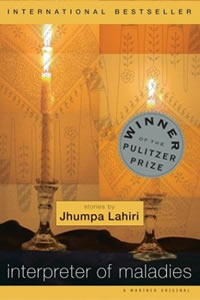
Interpreter of Maladies is a book collection of nine short stories by American author of Indian origin Jhumpa Lahiri published in 1999. It won the Pulitzer Prize for Fiction and the Hemingway Foundation/PEN Award in the year 2000 and has sold over 15 million copies worldwide. It was also chosen as The New Yorker's Best Debut of the Year and is on Oprah Winfrey's Top Ten Book List.

Rashid Jahan was an Indian writer and medical doctor known for her Urdu literature and trenchant social commentaries. She wrote short stories and plays and contributed to Angarey (1932), a collection of unconventional short stories written in collaboration with Sajjad Zaheer, Ahmed Ali, and Mahmuduz Zafar.
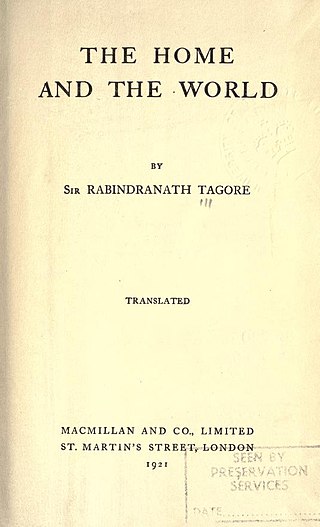
The Home and the World is a 1916 novel by Rabindranath Tagore. The book illustrates the battle Tagore had with himself, between the ideas of Western culture and revolution against the Western culture. These two ideas are portrayed in two of the main characters, Nikhilesh, who is rational and opposes violence, and Sandip, who will let nothing stand in his way from reaching his goals. These two opposing ideals are very important in understanding the history of the Bengal region and its contemporary problems.

Brinda Karat is an Indian marxist politician, and former member of Rajya Sabha as a Communist Party of India (Marxist) member, from 11 April 2005 to 2011 for West Bengal.

"White Nights" is a short story by Fyodor Dostoevsky, originally published in 1848, early in the writer's career.
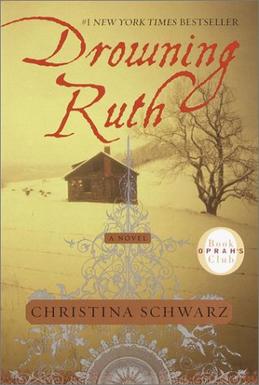
Drowning Ruth is a 2000 bestselling novel by Christina Schwarz, author of five novels. Drowning Ruth was chosen as a selection for Oprah's Book Club in September 2000.

A Good Scent from a Strange Mountain is a 1992 collection of short stories by Robert Olen Butler. It received the Pulitzer Prize for Fiction in 1993.
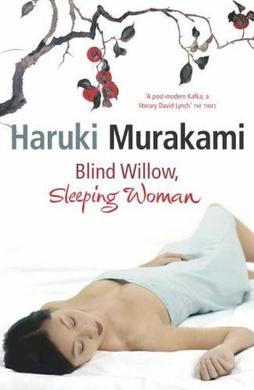
Blind Willow, Sleeping Woman is a collection of 24 short stories by Japanese author Haruki Murakami.

Betrachtung is a collection of eighteen short stories by Franz Kafka written between 1904 and 1912. It was Kafka's first published book, printed at the end of 1912 in the Rowohlt Verlag on an initiative by Kurt Wolff.
Kaisa Yeh Ishq Hai... Ajab Sa Risk Hai is an Indian soap opera, a love story of two individuals with different backgrounds coming together, which aired on Life OK from 22 April 2013 to 23 May 2014. The show was produced by Manish Goswami and was originally titled Chali Main Piya Ke Desh. Initial part of show was shot at Macau, Singapore and Bangkok.
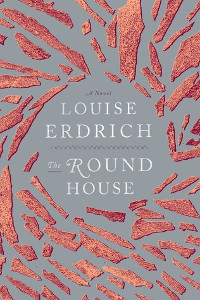
The Round House is a novel by the American writer Louise Erdrich first published on October 2, 2012 by HarperCollins. The Round House is Erdrich's 14th novel and is part of her "justice trilogy" of novels, which includes The Plague of Doves released in 2008 and LaRose in 2016. The Round House follows the story of Joe Coutts, a 13-year-old boy who is frustrated with the poor investigation into his mother's gruesome attack and sets out to find his mother's attacker with the help of his best friends, Cappy, Angus, and Zack. Like most of Erdrich's other works, The Round House is set on an Ojibwe reservation in North Dakota.

Zachariayude Garbhinikal is a Malayalam–language comedy-drama film written and directed by Aneesh Anwar. The film narrates the incidents in the life of a gynaecologist Dr.Zacharia and five women who come into his life. Lal appears as the gynaecologist while Rima Kallingal, Sanusha, Geetha, Asha Sarath, and Sandra Thomas play the roles of five pregnant women. Vijay Babu, Sandra Thomas and Sandra's father Thomas Joseph Pattathanam produced this film under the banner of Friday Film House. The film started production in May 2013 from Kochi, Kerala.

"Why I Live at the P.O." is a short story written by Eudora Welty, American writer and photographer. It was published in her collection of stories named A Curtain of Green (1941). The work was inspired by a photograph taken by Welty that depicts a woman ironing at the back of a post office. The story is classified as an example of Southern realism. "Why I Live at the P.O." is one of Welty's most popular and frequently anthologized stories.

Sun Yaara is a Pakistani drama television series that aired on ARY Digital from 2 January to 17 July 2017. It is directed by Danish Nawaz, written by Asia Mirza and produced by Humayun Saeed and Shahzad Nasib under Six Sigma Plus. It stars Junaid Khan, Hira Salman and Zarnish Khan.

The Diving Pool: Three Novellas is a novella collection by Japanese author Yōko Ogawa, first published in English in 2008. It was Ogawa's first book-length work to be translated.

Ante Sundaraniki! is a 2022 Indian Telugu-language romantic comedy film written and directed by Vivek Athreya. Produced by Mythri Movie Makers, it stars Nani and Nazriya Nazim. The film tells the story of Sundar and Leela, an interfaith couple who try to convince their parents about their marriage through a string of lies only to find themselves in more complicated situations.


















